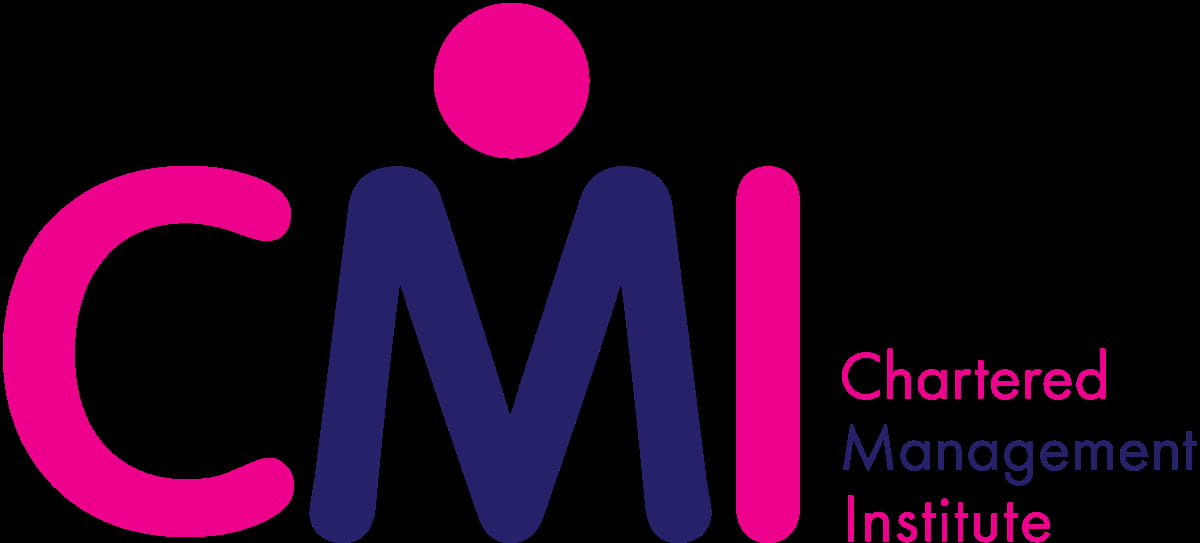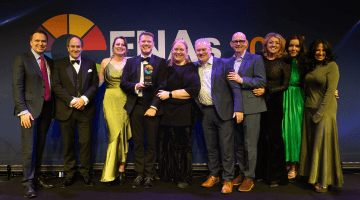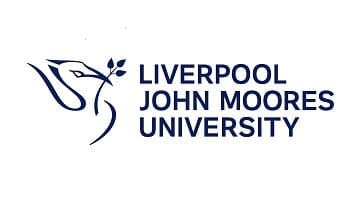About this course
Enhance your business or contribute to organisational growth by learning responsible scale up approaches on this Business MBA from LJMU. This programme aims to transform participants into confident business professionals capable of scaling up a business.
- Learn about the key factors that enable business growth
- Study on a course designed in response to government and local ambitions for business growth
- Start your studies in September or January
- Delivered in blocks for extra flexibility and to fit studies around existing commitments
- Relevant for those with responsibility for leading strategy and change, managing a budget and developing staff to ensure continued and responsible growth
- Benefit from course content and teaching informed by proprietary business research and academics' close links to business
- Learn alongside others experiencing similar challenges and discuss leadership and strategy in the context of Scaling-Up
A 'scale-up' is an enterprise that has experienced significant growth rates in employees and turnover over a number of years.
Nationally, scale-up businesses have been identified as a priority area, recognised by the appointment of a scale up champion in Government who aims to increase the number of businesses maximising opportunities to reach their growth potential. This will feed into the Government's industrial strategy.
MBAs equip managers with a broad and rich understanding of business, enabling them to manage effectively. This scale up MBA focuses on the key areas a business would need to investigate to assess scale up potential. The course combines key management disciplines from the key QAA and CMI benchmark statements with recent national research on the drivers of business scale up.
The programme is structured in three phases. The first phase provides an intensive focused range of interventions aimed at realising the potential of growth within businesses. Stages two and three then draw on these areas to analyse ideas and develop them further to plan and enable accelerated growth. Finally, a strategic project builds the evidence base for scale up strategies, and addresses a significant and strategic area for your business.
Course modules
Discover the building blocks of your programme
Further guidance on modules
Modules are designated core or optional in accordance with professional body requirements, as applicable, and LJMU’s Academic Framework Regulations. Whilst you are required to study core modules, optional modules provide you with an element of choice. Their availability may vary and will be subject to meeting minimum student numbers.
Where changes to modules are necessary these will be communicated as appropriate.
Core modules
Professional accreditation

Your Learning Experience
An insight into teaching on your course
Study hours
You will attend a 1-day induction at the start of the programme and modules will normally be delivered in block release format i.e. three full days per month per 10 credit module.
You will be expected to undertake work on your own and, given the applied approach to assessment, this will demand a degree of self-management and resilience to manage a full time senior leader work role with part-time study.
Teaching methods
Our approach to how managers and leaders learn uses proven management and leadership development approaches.
Our flexible delivery approach involves face-to-face teaching and facilitation, blending online support activity with the facility to introduce live online sessions and individual and group tutorials. It is also a supportive and collaborative environment for working with peers, facilitators and colleagues. Classroom sessions are devised as an interactive, learner-centred experience with group activities playing a large part in the learning experience.
The university 's Virtual Learning Environment (Canvas) gives you access to teaching and materials wherever you study, and it provides a means for you to maintain contact and submit assignments.
Applied learning
A strong emphasis is placed on the workplace as a place to learn; participants integrate key concepts and theories, assessing the impact of these on their own working environment. The ability to analyse organisational issues and apply recommendations supported by a theoretical framework is fundamental and is assessed in all elements of the programme.
Techniques include:
Recognising the workplace as an important place to learn: Learners will apply ideas in the workplace, improving their skills through a range of workplace activities and then reflecting and reviewing this practice with peers on the programme.
Self-development planning: Organisational processes can be applied to ensure that individuals plan to develop their own strengths in line with business competencies and values, and to recognise their own personal needs.
Using 'flipped learning': This reverses the conventional process of teaching by providing the content prior to the teaching and learning session using a virtual learning environment, so that the focus of the workshop becomes about active learning and application of theory to practice.
Coaching and peer-to-peer coaching: Coaching not only enables the individual learner to tailor the programme to meet their needs, but it also provides the opportunity for the organisation to propose business critical skills and values which can become a part of the development activities.
Action learning: This will be adopted as a supportive and collaborative approach to learning to manage. Action learning will be used to support personal development, where issues and challenges from the workplace can be discussed.
Projects: For each theme there is the possibility of designing an in-company project or series of projects to ensure that business needs are met.
Masterclasses: Key note speakers will address current issues, emerging practice and thought leadership.
Liverpool Business School at Liverpool John Moores University is a member of AACSB International — The Association to Advance Collegiate Schools of Business.
AACSB International is a global association of leaders in education and business dedicated to supporting and advancing quality business education worldwide. Through membership, accreditation, research, thought leadership, professional development, and advocacy, AACSB partners with over 1,500 organizations, from more than 90 countries globally. Membership or participation in the Global Education Alliance does not imply accreditation.
How learning is monitored on your programme
To cater for the wide-ranging content of our courses and the varied learning preferences of our students, we offer a range of assessment methods on each programme.
All assignments are focused on personal and professional development through reports, essays projects and portfolio development.
Where you will study
The School is based in the Redmonds Building, in the heart of the bustling Mount Pleasant Campus and Liverpool 's growing Knowledge Quarter. The building is home to high quality lecture theatres and seminar rooms, social spaces, and a café. It is only a short walk from LJMU's Aldham Robarts Library, which contains all the resources you will require for your studies, and is open seven days a week.
Liverpool Business School also has a dedicated Management Development Suite, based in a listed building in the historic Georgian Quarter of Liverpool and a short walk from the Redmonds Building. The building has recently undergone £1.2 million investment to provide a professional learning space.
Career paths
Further your career prospects
LJMU has an excellent employability record with 96% (HESA 2018) of our postgraduates in work or further study six months after graduation. Our applied learning techniques and strong industry connections ensure our students are fully prepared for the workplace on graduation and understand how to apply their knowledge in a real world context.
On graduation from the programme you will see a marked improvement in day-to-day performance, confidence and learning in the workplace, as well as improvements in your ability to demonstrate new skills learnt during the course.
By combining experience with new management thinking developed over the lifetime of the MBA, you will also see improvements in decision-making, contributions to idea generation and business improvement.
Tuition fees and funding
- Part-time per year:
- £6,830
Fees
The fees quoted above cover registration, tuition, supervision, assessment and examinations as well as library membership and student IT support with access to printed, multimedia and digital resources including programme-appropriate software and on campus wifi.
Financial Support
There are many ways to fund postgraduate study for home and international students. From loans to International Scholarships and subject-specific funding, you’ll find all of the information you need on our specialist postgraduate funding pages. The University offers a range of financial support for students. You'll find all the information you need on our specialist financial support pages including details of the Student Support Fund and other activities to support with the cost of living.
Additional Costs
In addition to fees, students should also keep in mind the cost of:
- Accommodation
- Travel costs and field trips unless paid for by LJMU
- Stationery, IT equipment, professional body membership and graduation gown hire
Entry requirements
You will need:
Qualification requirements
How to apply
Securing your place at LJMU
To apply for this programme, you are required to complete an LJMU online application form. You will need to provide details of previous qualifications and a personal statement outlining why you wish to study this programme.
Your university life
From accommodation and academic support to clubs and societies. Find out what LJMU has to offer.
Related Links
Talk to our students
Connect with a current LJMU student for advice and guidance on university life, courses and more.
See what our students are saying
At LJMU we want you to know you’re making the right choice by studying with us. You can see what our students are saying about their experience with us through their reviews on the following websites:
Related Links
News and views
Browse through the latest news and stories from the university
The University reserves the right to withdraw or make alterations to a course and facilities if necessary; this may be because such changes are deemed to be beneficial to students, are minor in nature and unlikely to impact negatively upon students or become necessary due to circumstances beyond the control of the University. Where this does happen, the University operates a policy of consultation, advice and support to all enrolled students affected by the proposed change to their course or module.



























